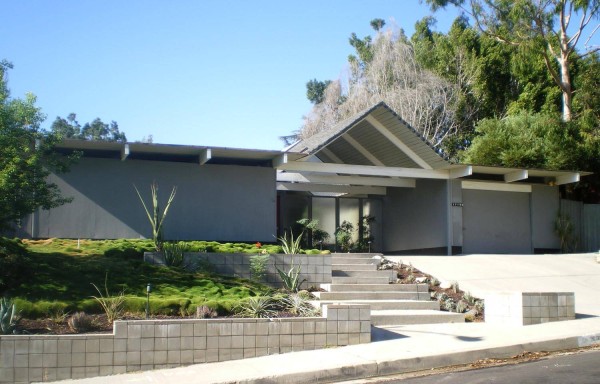
If you live in California, you’re probably familiar with the flat top homes known as Eichlers. They are homes built by developer Joseph Eichler in the 1950s and 1960s. What you may not know, is that these homes were also built during one of the most racially charged times in U.S. history. Until the Fair Housing Act of 1968 was passed, it was common for developers in the U.S. to segregate their housing offerings and incorporate the rules for segregation into their CC&Rs (Codes, Covenants, & Restrictions), that purchasers of their new homes would have to sign upon purchasing the home. The typical language in a CC&R would have “race restrictions”, that would state “…no person of African, Japanese, Chinese, or Mongolian descent, shall use or occupy any such property, or any part thereof, unless such persons are employed as servants by a Caucasian occupant of some portion of such property.”[1] These restrictions were of course, invalidated by the Fair Housing Act of 1968, but the language remains in the CC&Rs of many homes in California today. During the 1950s when this discriminatory language was in popular use in California, Eichler emerged as one of the few, and possibly only home builder in the SF Bay Area and LA area that did not include discriminatory language in his CC&Rs, and was the one builder who stood up for the rights of minorities, at least in the arena of fair housing practices.
This isn’t the first time I’ve written about Eichler, as I mentioned his equal housing stance in an article I wrote back in 2009. The topic of fair housing came up again recently in a conversation I was having with fellow 8Asians writers at the June 2013 V3Con Conference in Los Angeles. I mentioned that when I purchased my first home in San Jose, CA back in 1993, it had CC&Rs that said I could not live in my home except as a servant to the Caucasian owners (the same text you see in the first paragraph). It still surprises people I relay my story to, that as late as 1968, Asians and other minorities had a really tough time buying new homes in California.
The topic of housing segregation came up again in the internal 8Asians mailing list with the June 25, 2013 LA Times article on how Asians are as segregated as Latinos in the neighborhoods they choose to live in, referencing a new study from Brown University. Someone on our internal list joked that Caucasians also tend to self-segregate, and I mentioned in a reply that the area where I bought my first home, the one with the discriminatory CC&Rs was still very much a “white” neighborhood, (25 years after the Fair Housing Act went into effect) back when I bought my home in 1993. And even today, 45 years later the racial make-up of the neighborhood hasn’t changed that much, even with the influx of Asians and Hispanics into Silicon Valley.
Eichler homes, on the other hand, were one of the few opportunities for minorities to buy a new home in California. Although Eichler accepted CC&Rs that were discriminatory in his early partnerships (but ignored them when selling homes), he removed them from his CC&Rs when he became an independent builder. Paul Adamson in his book, “Eichler: Modernism Rebuilds the American Dream”, describes a situation in the 1950s when Eichler’s staff sold a home to the first Asian American in their Palo Alto, CA subdivision, and five of the Caucasian homeowners banded together to insist on refunds from Eichler for allowing Asian Americans in the subdivision. Eichler’s marketing director Jim San Jule, told the Caucasian homeowners to “get out”, and told them “we don’t even want people like you in our subdivision.”
Today, Eichler homes have a divisive following. Either you love them or hate them. Their architecture is unique, often described as contemporary. Eichler homes are distinguished by flat top roofs, expansive window areas, outdoor courtyards in the center of the home, and heating systems built into the concrete slab foundation. But my guess is few who own one and purchased their home after 1968 know about their unique history relative to the Civil Rights movement in the United States, and how Joseph Eichler and his team were Asian American activists in their own right.
Adamson, Paul; Marty Arbunich, Ernest Braun (photographer) (2002). Eichler: Modernism Rebuilds the American Dream. Layton, Utah: Gibbs Smith Publishers. ISBN 1-58685-184-5.
Photo Credit: Foster Residence, Granada Hills. Wikipedia.org, by Los Angeles.







